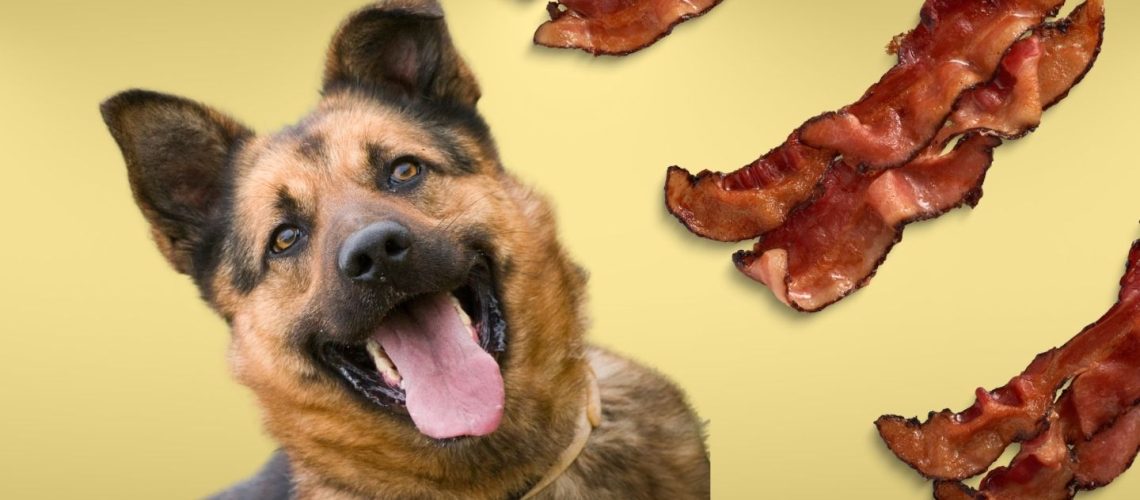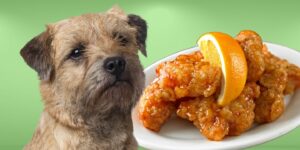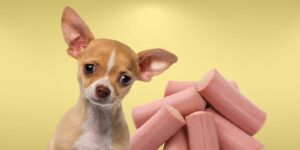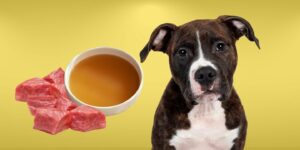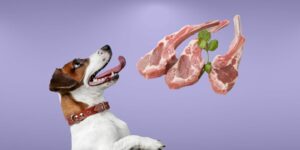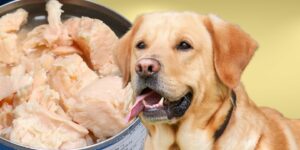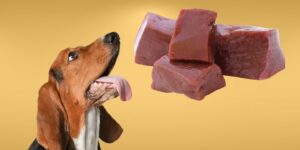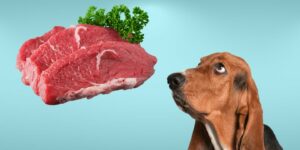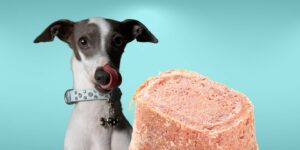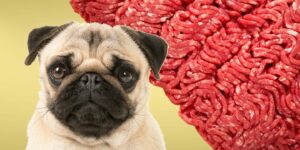In short, no, dogs should not eat bacon. While bacon may seem like a tasty treat for dogs, it is actually quite unhealthy for them. Bacon is high in fat and salt, which can cause pancreatitis and other digestive problems in dogs. In addition, the high fat content can lead to obesity and other health problems over time.
Why Dogs Love Bacon
Dogs are attracted to the smell and taste of bacon, as it is a high-fat and flavorful food. However, just because dogs love it, does not mean it is safe or healthy for them to consume.
Common Misconceptions About Feeding Dogs Bacon
Some dog owners may believe that because bacon is made from meat, it is a natural and suitable treat for their pets. However, the way bacon is processed and cooked makes it unsuitable and even dangerous for dogs to eat.
The Dangers of Feeding Bacon to Dogs
High Fat Content
Bacon contains a high percentage of fat, which can cause several health issues in dogs:
The Risk of Obesity
Feeding dogs bacon regularly can lead to weight gain and obesity, which in turn can cause diabetes, heart disease, and joint problems.
The Development of Pancreatitis
The high fat content in bacon is one of the major causes of pancreatitis in dogs. Pancreatitis is a serious, potentially life-threatening condition that can cause severe abdominal pain, vomiting, and diarrhea.
High Salt Content
Bacon is also very high in salt, which can be detrimental to a dog's health:
The Risk of Salt Poisoning
The excessive amount of salt in bacon can lead to an overconsumption of sodium, potentially causing salt poisoning in dogs. Salt poisoning can cause symptoms such as vomiting, diarrhea, seizures, and even death.
Preservatives and Additives
Processed bacon contains preservatives and other chemicals that can be harmful to a dog's health, leading to digestive upset and other issues.
The Risk of Allergic Reactions
Some dogs may be allergic to the ingredients or additives found in bacon, which can cause itching, hives, swelling, and difficulty breathing.
Safe Alternatives to Bacon for Dogs
Instead of bacon, consider providing your dog with healthier treat options:
Homemade Dog Treats
Make your own dog treats using dog-safe ingredients, such as whole grains, lean meats, and vegetables.
Natural, Unprocessed Meat Options
Offer small amounts of lean, unprocessed meats, such as chicken or turkey, as a treat for your dog.
Vegetables and Fruits as Treats
Many dogs enjoy fruits and vegetables, such as apples, carrots, or green beans. Ensure that the fruits and vegetables you provide are safe for dogs to eat.
Commercially Available Dog-Friendly Treats
Purchase dog-approved treats from your local pet store, making sure to read the labels and choose options with natural ingredients and low fat content.
Tips for Responsible Dog Feeding
Monitoring Your Dog's Diet
Importance of Balanced Diets
Provide your dog with a balanced diet that meets their specific nutritional needs for optimal health.
Knowing Your Dog's Caloric Needs
Understand your dog's daily caloric requirements and adjust their food intake accordingly to maintain a healthy weight.
Watching for Signs of Health Issues
Monitor your dog for any symptoms of health issues related to their diet, such as vomiting, diarrhea, lethargy, or changes in weight.
Symptoms of Pancreatitis
Signs of pancreatitis may include abdominal pain, vomiting, diarrhea, and a hunched-back posture.
Symptoms of Salt Poisoning
Look for symptoms like excessive thirst or urination, vomiting, diarrhea, tremors, seizures, and coma.
Symptoms of Allergic Reactions
Potential signs of an allergic reaction include itching, hives, facial swelling, and difficulty breathing.
Frequently Asked Questions About Dogs and Bacon
Can Dogs Eat Cooked Bacon?
No, dogs should not eat cooked bacon due to its high fat and salt content, as well as potential preservatives and additives.
Can Dogs Eat Turkey Bacon?
Turkey bacon may be slightly lower in fat and sodium than traditional bacon, but it can still pose a risk for dogs, especially if it contains additives and preservatives.
Can Dogs Eat Bacon Grease?
Bacon grease is high in fat and can lead to the same risks as consuming bacon, such as pancreatitis and obesity. Avoid feeding your dog bacon grease.
Can Dogs Eat Bacon Bits?
Bacon bits can be high in fat, salt, and potentially harmful ingredients, making them an unsuitable treat option for dogs.
Conclusion
In conclusion, bacon is not a good treat for dogs and should be avoided. While it may seem like a tasty treat, the high fat and salt content can cause serious health problems. It is best to stick to dog-friendly treats and provide a balanced diet to keep your dog healthy. The importance of providing safe and healthy treats for your dog cannot be overstated, as it ensures their continued well-being and longevity.

